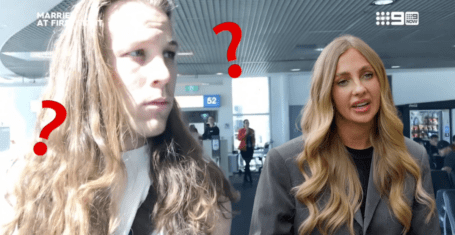
Black Mirror’s first episode is all of us right now, and that’s what makes it so terrifying
Social media has become more than just an ‘app’ – it’s our social currency
Black Mirror has historically been a series of critiques aimed at the establishment, future generations and generally bad people. So the most shocking thing about the first episode Nosedive is that it’s about us, and it’s set in our lifetime, right now.
As you see the lead character Lacie running through her neighbourhood scrolling through a feed on her phone, you know this episode is not going to be about a misled future civilisation, bewildered politician or cruel-hearted murderer. The episode turns its attention on young social media users.
1.71 billion people are active on Facebook each month, 284 million on Twitter and 200 million on Instagram and growing.
We all know it’s not “good” for us, with countless reports of links between social media and depression – but we can’t stop.
Each person in this bizarre (and uncomfortably close) world has a score attributed to them, which everyone and anyone can see due to contact lenses which appear to be worn by everyone in the series – even the cynics.
The phone appears to have lost its core functions of messaging and calling – which one could easily argue is the case today. It is a place to analyse those around you like on Facebook or Instagram, but also to get immediate feedback on how they feel about you.
Each real-life interaction is rated, letting you know how you did out of five. In this world it’s not just that photo you instagrammed, but your actions too.
Your rating can determine the houses available to you, whether you get a job and what cars you can drive.
It’s more than an “app” – it’s a social currency.
The Guardian points out that in Africa, your social media status can help to determine whether you are eligible for a loan. Social Lenders “look at borrowers’ social media profiles to assess their creditworthiness”, according to the BBC. Many employers, especially in media, will ask how many Facebook, Instagram and Twitter followers you have.
Lacie takes a bite of a biscuit to upload a picture of it with her coffee, before grimacing at the taste and taking a picture of it
It’s all a bit close to home – not just for “basic bitches” but for anyone who has ever posed for a picture and been excited for it to appear on Facebook.
In the context of a Black Mirror episode, this proximity to our own actions makes the warning all the more personal and severe.
Naomi, a 4.8, uploads perfect pictures of herself doing yoga
Although the concept of doing good deeds in order to improve one’s social reputation is horrifying, Brooker makes you find yourself (against your better judgement) wondering what your score would be.
When it comes to the social media obsession, which is growing with each year and generation, we know we are going to reach a breaking point and we only have ourselves to blame.
Its creator, Charlie Brooker, describes Black Mirror as made up of “deliciously horrible what ifs”. This is its third series but the reason it’s caused such a stir is because it’s absolutely the biggest, having been bought by Netflix for $40 million (which means you can binge watch it all right now).
In writing about us, Brooker has created a level of discomfort somehow worse than when we watched a fake PM have intercourse with a pig.
Nosedive represents a time where instead of us using social media, social media is using us – where we are a slave to the apps and technology that we created.
Regardless of how much you suppress it, our social media personas have become an extension of ourselves. Monitoring the number and rate of likes, because obviously your real friends will like what you’re up to.
The lines have become blurred and Black Mirror makes that all the more apparent.





















